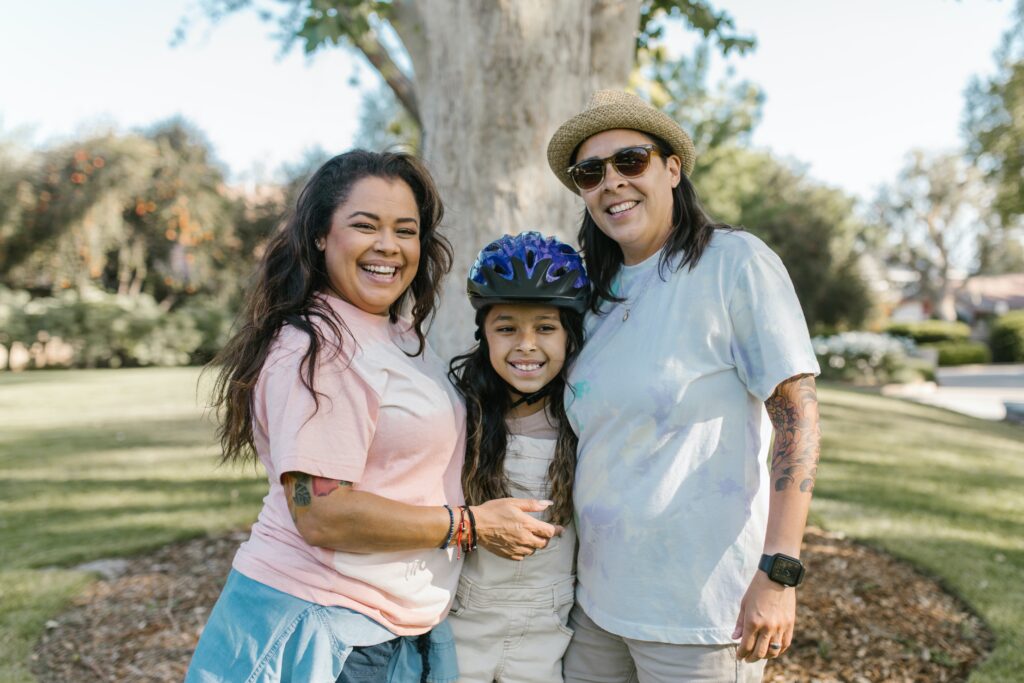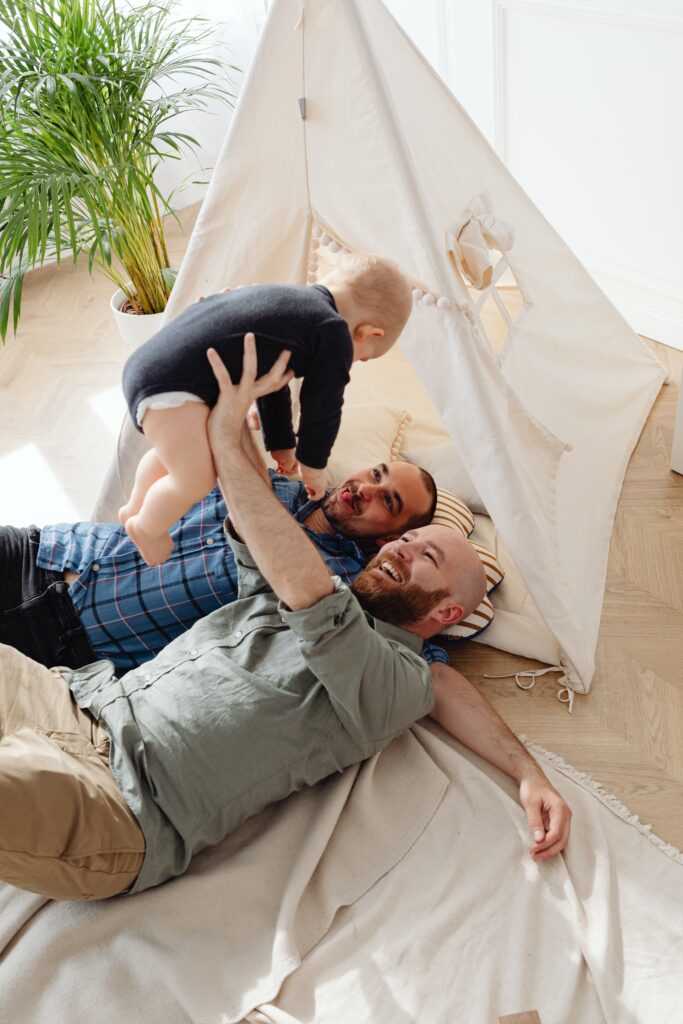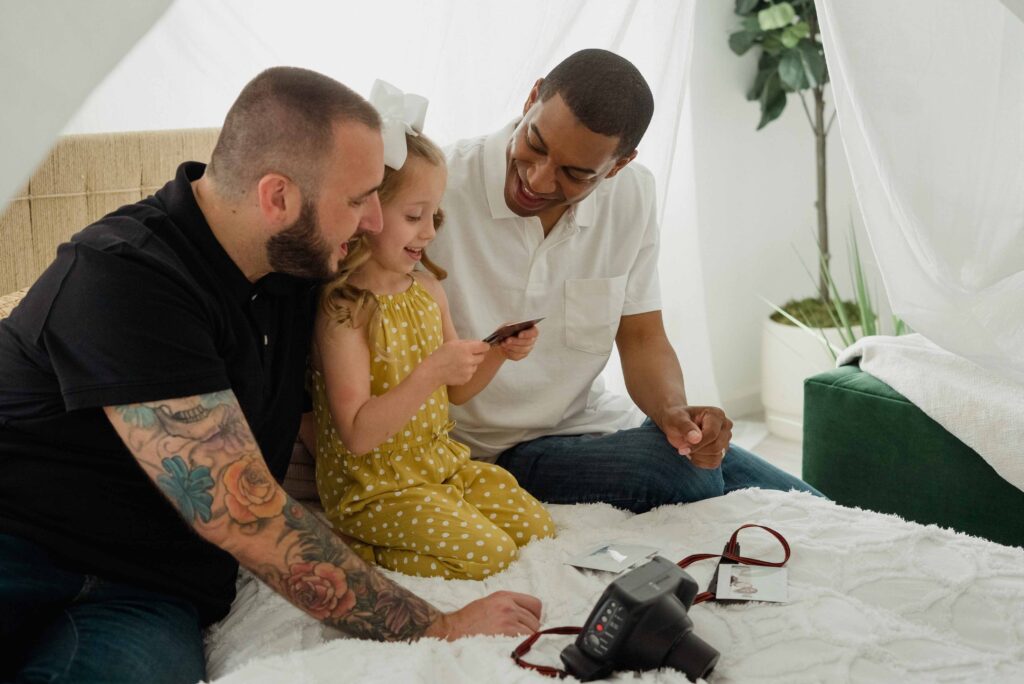Addressing the challenges for LGBTQ+ people on the path to parenthood
Eleven million American adults identify as LGBTQ+. Many of them have or are considering expanding their families.
In fact, research shows that up to 3.7 million youth under the age of 18 are being raised by an LGBTQ+ parent.
What’s more, Family Equality’s 2019 Family-Building Survey revealed that of the estimated 6 million LGBTQ+ millennials living in the United States, 63% plan to expand their families in the coming years. This means that there will be millions of LGBTQ+ people embarking on their path to parenthood, seeking family-building resources and providers that will treat them with the dignity and excellence they deserve.
And yet, LGBTQ+ families often live in states and communities where they do not feel wholly safe, valued, and seen.

No matter what path to parenthood an LGBTQ+ family takes, the challenges they might face are tremendous. From the beginning, prospective parents are bracing for stigma and discrimination from doctors, lawyers, nurses, clinicians, and other family-building professionals—the core players in their path to parenthood. A 2017 poll conducted by Harvard Chan School, NPR, and the Robert Wood Johnson Foundation, found that one-sixth of LGBTQ+ adults have experienced discrimination in a healthcare setting, while nearly a quarter say they have avoided seeking medical care out of fear of discrimination.
For those forming their family using assisted reproductive technology, there’s the added burden of finding—and, in the case of those who are in rural communities, traveling to—practices that are not just competent in the issues LGBTQ+ families face, but explicitly affirming of their identities and family structure. The reality is that most LGBTQ+ people will encounter a myriad of unsupportive professionals on their paths to parenthood, which has mental and emotional impact on their sense of hope and autonomy on their journey. The weight of having to educate those who are supposed to be supporting you at a time that should be joyous is more than just anxiety-producing, it downright detracts from the magic of growing one’s family.
Aside from interpersonal stigma and discrimination, there are very tangible logistical barriers to expanding one’s LGBTQ+ family. It may go without saying that the number one challenge for LGBTQ+ people expanding their families is cost. Becoming a parent can be expensive, regardless of who you are, where you live, or how many adults will be raising the child(ren). But for LGBTQ+ people, that cost increases significantly because of the expenses associated with adoption, foster care, or assisted reproductive technology, often creating a significant gap between means and desire.
One way to bridge this gap is to address discrimination in insurance benefits. While there are currently 17 states that have mandated fertility treatment coverage, most language completely excludes the LGBTQ+ community. Requirements in place assume that individuals who want to have biological children are 1) in a relationship, and 2) with someone who has the other piece of the reproductive material puzzle. That simple assumption already excludes many people in the LGBTQ+ community, especially transgender folks and people with intersex traits. Additionally, the paths to parenthood covered under fertility benefits are limited. In the few instances that these benefits are accessible to LGBTQ+ people, not even all aspects of assisted reproductive technology qualify for coverage, such as donor eggs or sperm, surrogacy, and certain fertility testing.
There is hope, though. LGBTQ+ people considering expanding their families are not without support, and organizations like Family Equality and Walgreens are working to ensure that everyone—regardless of who they are, who they love, or where they live—can find, form, and sustain a family.

Family Equality advocates for legal protections at both the state and federal levels and offers direct resources to queer families. From virtual peer support groups to a robust library of resources and educational tools, they have opportunities for LGBTQ+ families to find community, connection, and support no matter where they are on their parenting journey.
Additionally, Family Equality provides LGBTQ+ diversity and inclusion training for family building providers. The goal of this program, called Open Door, is to deepen LGBTQ+ competency amongst family-building professionals, empowering them to create practices that respect and celebrate LGBTQ+ people and break down some of the barriers that families face. A directory of LGBTQ+ friendly and affirming family-building providers can be found on the Family Equality website at familyequality.org.
Walgreens, having served the fertility community for over 30 years through its specialty pharmacies, is a recent Open Door trainee, completing LGBTQ+ inclusivity and competency training for all Walgreens fertility-specialized pharmacy teams. They have expert knowledge on medications, insurance, and the financial assistance programs that can help LGBTQ+ individuals overcome the significant financial barriers to accessing fertility treatments. With a commitment to reliable and compassionate care that acknowledges the unique challenges and situations for all people looking to build their families, Walgreens seeks to be an LGBTQ+ ally within the care team.
Now more than ever, LGBTQ+ families need to know they are accessing care that is inclusive and understanding of all the ways they might show up in the world. Every family-building entity that pursues education to further their inclusivity makes a difference.
About the Authors
Jess Venable-Novak (they/them), Director of Family Formation at Family Equality, is a queer, nonbinary parent living in rural Vermont with their partner, kiddo, and baby. They have worked at Family Equality for 3 years in a variety of roles, and currently serve at the Director of Family Formation. They bring with them years of experience working at the intersections of advocacy, facilitation, and community building and LOVE to talk about the joys of queer found, formed, & chosen family.
Laly Havern (she/her) is Specialty Health Solutions Director at Walgreens, where she leads the strategy for specialty clinical products and services in oncology and fertility. Her previous roles include 11 years as a community specialty practitioner focusing on patients living with HIV, cancer, and cystic fibrosis and four years at the Walgreens Office of Clinical Integrity conducting evidence-based clinical reviews and establishing clinical programs to address the needs of patients, providers, and partners. Her passion lies in surrounding patients with support through their health journey and improving clinical outcomes. She holds a doctorate in pharmacy from Duquesne University, is board-certified in ambulatory care, and recently completed a Master of Science in Pharmacogenomics from the University of Florida.






